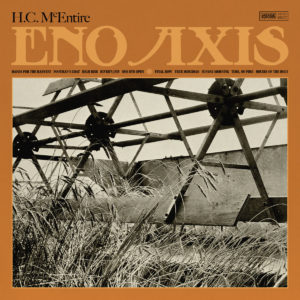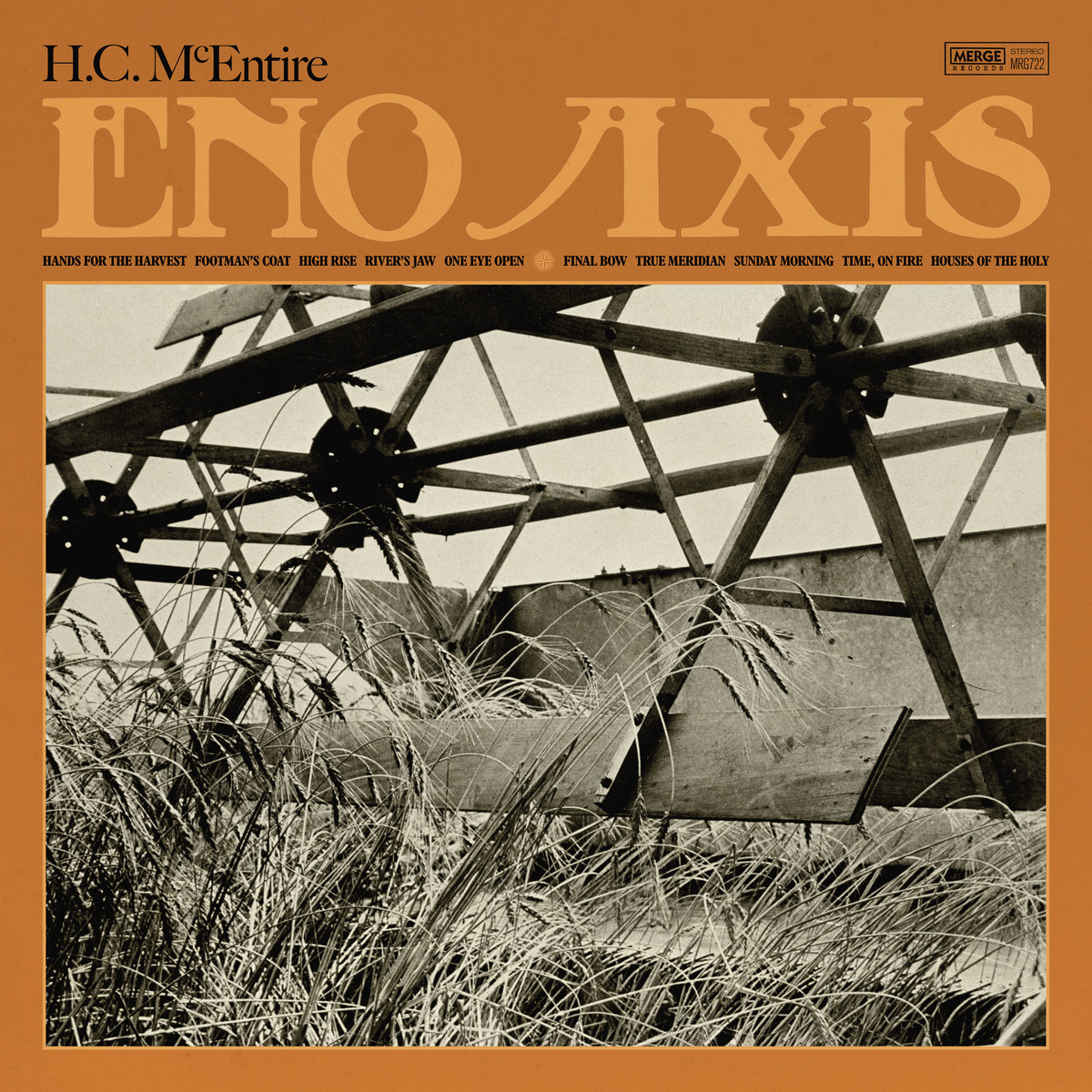H.C. McEntire
Eno Axis
MERGE
8/10
H.C. McEntire isn’t afraid to argue with the soil that she was born unto—she only wants to make it stronger, only wishes to make it more enriched. On her sophomore album Eno Axis, the punk-singer-turned-country-crooner wades into the water and gives herself over to its untamed power. She compassionately tends to the land and its spirit, embracing her pastoral surroundings to facilitate emotional labor and strengthen a spiritual relationship with mother nature’s mystical gifts.
Lionheart, her first album as H.C. McEntire, found her reckoning with her upbringing in a conservative and religious South. As a gay country musician, she was reconciling with the pain of her childhood and the close-minded limitations of the genre of music she poured her soul into. It’s a beautiful album that similarly paints her intimacy with nature, and gives us a personal tour of the anxieties, joys, and pains that fuel the songwriter. Lionheart was integral to understanding the strong and open-hearted woman, but Eno Axis is untethered to expectations of introductions.
Eno Axis is an album to escape into without being a delusional utopia. McEntire’s vocals have topsoil grit while being soaring and formidable. There are moments where her whispers are soft as ashes. During “Final Bow,” she maneuvers a frustrating situation with the enthralling dynamism of a storyteller, switching lanes between an embroiled strain in her voice to empathetic sorrow when she describes the protagonist with “tired eyes.” The songs bubble and simmer into each other. There are jagged moods, but Eno Axis is hypnotically cohesive.
There’s a sobering turn once we reach the “River’s Jaw,” wherein a bellowing piano and a forewarning guitar linger around McEntire as she preaches about fields “dressed in dead things” and “bloated tides.” Thereafter there are glimpses of a racist and hate-filled South on “One Eye Open,” and then a discouraging look at the misogynistic expectations of female performers on “Final Bow”—smoke-covered high hair and gin-stained breath to just “play the hits, big business.” “Time, on Fire” takes on a different meaning in our dystopian present. “No good night’s rest / No lips to press,” is a line ripe for a pandemic, just as it is for heartbreak.
At a time when our relationship with the outside world is complicated, Eno Axis is a reminder to respect nature’s cycles and adapt alongside them. The Eno River, which flows near where McEntire resides in Durham, North Carolina, is the guiding spirit across these ten tracks. Sometimes its presence is grounding, and sometimes it’s unnerving. In a recent interview she explained the spiritual humility nature emits. “Being patient and slow, living simply and looking hard, all are demonstrations in demystifying spirituality; noticing the metaphysical qualities that exist in harmony with the earth,” she says. Throughout Eno Axis, McEntire embraces new love, observes symbols of hatred, and casts a halo around the land she’s found commune with. She takes stock of what she’s grateful for and where she wills change.









